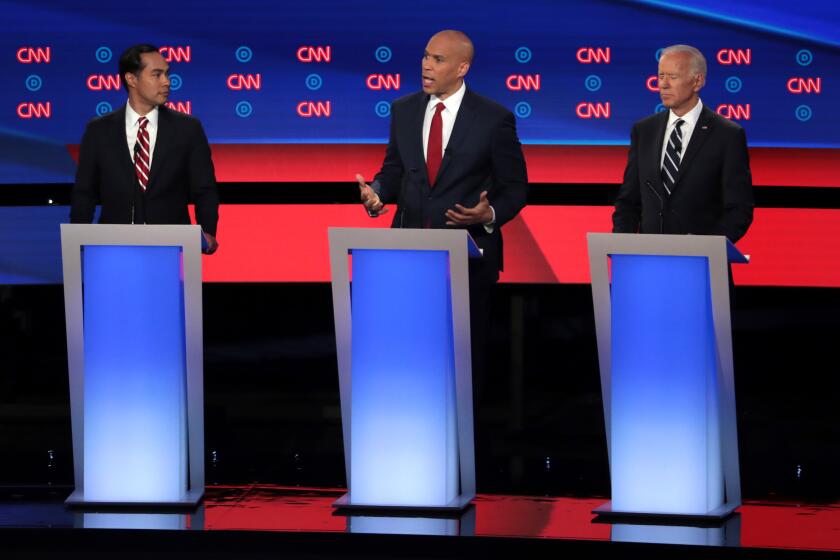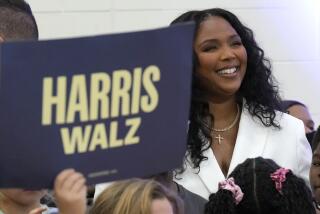Cory Booker tries to turn his debate moment into momentum
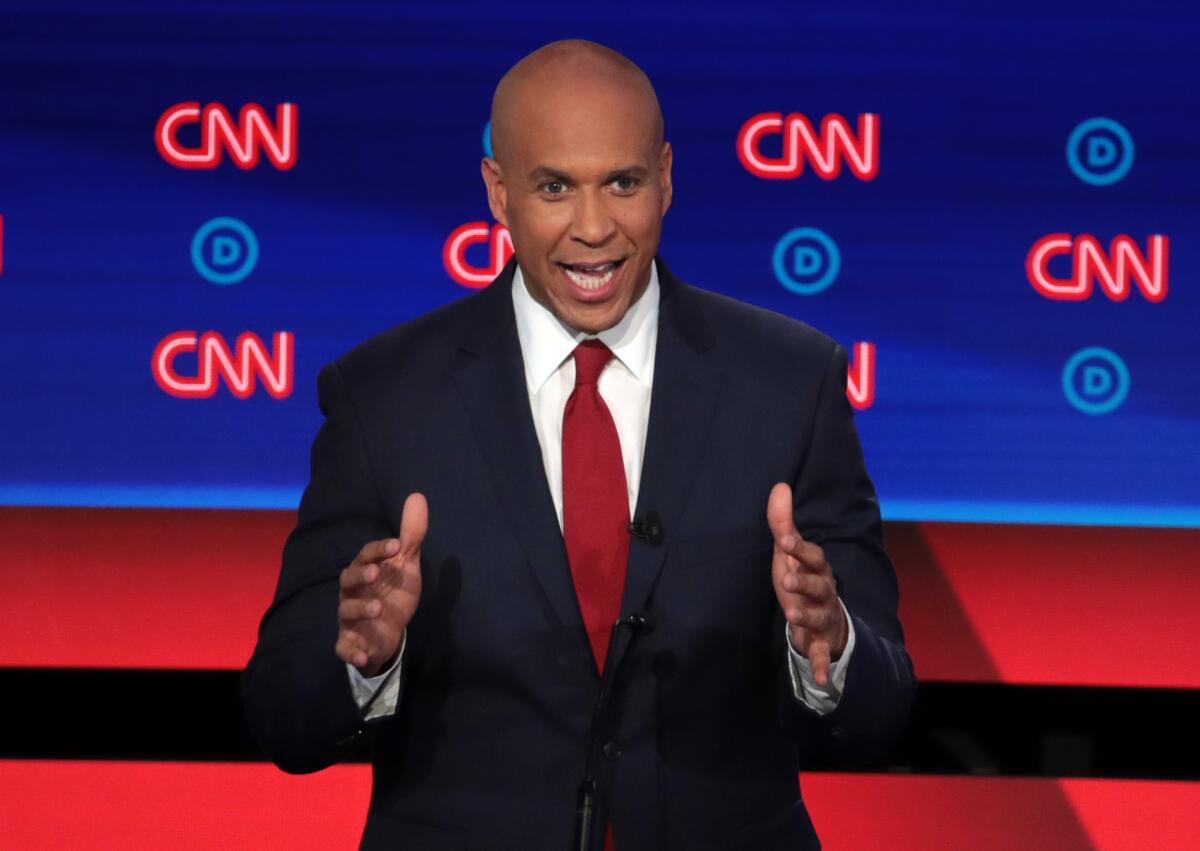
DETROIT — Cory Booker bounded onto a nightclub stage Thursday evening, speaking so loudly he didn’t need the microphone he clutched.
“I can’t tell you how great I feel to be here tonight! Give it up for Detroit,” the New Jersey senator told a few hundred boisterous supporters. “And I tell you, I didn’t get much sleep last night, everybody.”
Despite a lack of rest, the Democratic presidential candidate was indefatigable as he spoke at a raucous rally less than 24 hours after a debate performance that was widely praised by pundits as well as undecided voters in focus groups. Other candidates also fanned out across the city after two nights of Democratic debates here, trying to capitalize on their time in a state crucial in the 2020 presidential contest.
For Booker, the question is whether he can turn the moment into momentum.
The candidate — charismatic, Ivy League-educated, backed by wealthy donors on both coasts, savvy on social media — entered the presidential race with the potential to be a top-tier contender.
He has been a man looking for an opening in a sprawling Democratic field. Booker, with his earnest message of love and unity, has been polling in the single digits for months, concerning even his fiercest backers. One of two black candidates in the race, Booker has also not yet received notable support from African American voters.
“There has been some anxiety over when he is going to start to move in polls and fundraising,” said Steve Phillips, a Bay Area civil rights attorney and longtime Booker friend who runs a super PAC backing the candidate.
Booker’s performance in Wednesday night’s debate — plunging into policy disagreements with former Vice President Joe Biden without abandoning his trademark optimism — relieved some of Booker’s donors, Phillips said.
Between a heated argument over healthcare and an inconclusive discussion of climate change, 10 Democratic candidates for president grappled Wednesday with race — their party’s greatest potential source of strength and also its most fraught division.
“Last night was the sharpest I have ever seen him in terms of being able to distill his message,” Phillips said. “His particular strength is being able to point something out in a way that doesn’t come off as hostile or divisive. That was what he was able to do in that debate.”
Booker shared the debate stage with California Sen. Kamala Harris, who surged after her star turn lacerating Biden over busing in the June debates; front-runner Biden, who needed to avoid a repeat of his wobbly response to Harris last time; and seven other lesser-known candidates all hoping to make a mark.
Biden and Harris spent the first part of the debate in the weeds of healthcare policy. Neither delivered a game-changing performance. On Thursday, both expressed unhappiness with the format and tenor of the clash.
“I need to be very honest with you, it can be a frustrating process,” Harris, who struggled during the debate to confidently explain her newly unveiled healthcare plan, told reporters. “There are better venues where we’re able to have a real conversation. There are so many of these issues that just cannot be captured in 60 seconds, much less 30 or 15.”
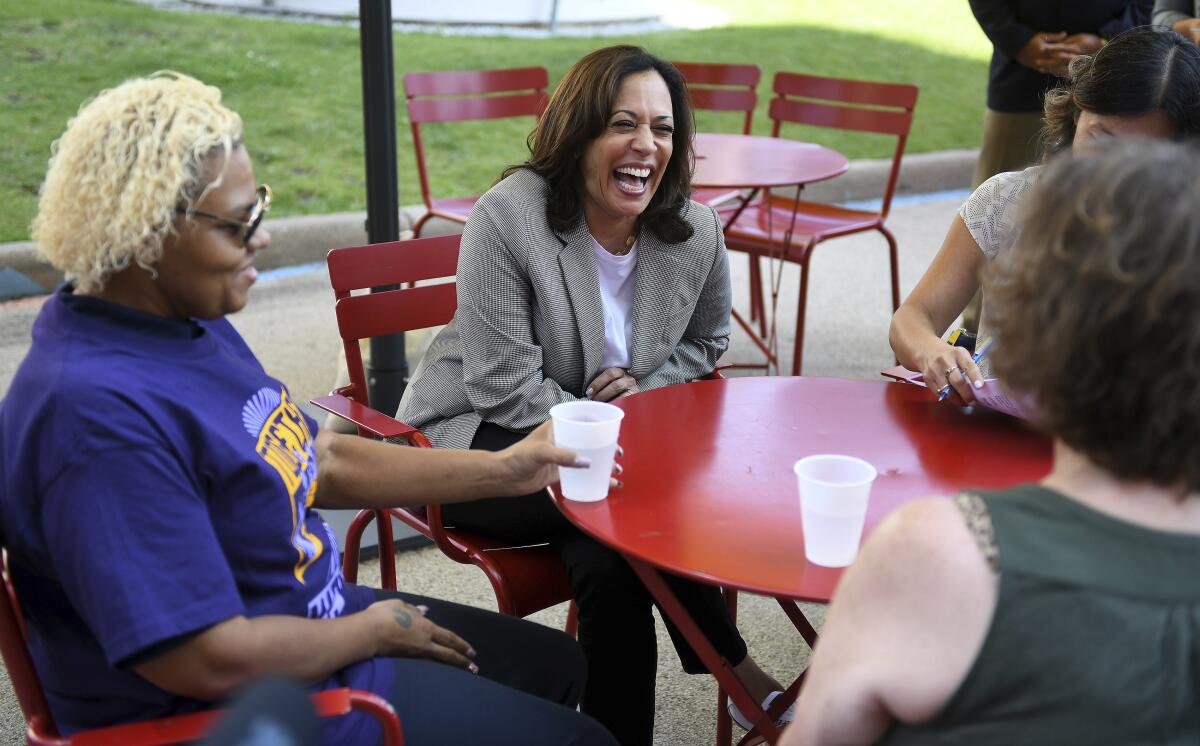
Biden — the focus of repeated attacks on multiple parts of his record by nearly every candidate on the stage — agreed.
“I hope at the next debate we can talk about all of the things that [President] Trump has broken,” Biden said, arguing that the attacks on his past words were inaccurate and a distraction. “This going back 10, 20, 30 years is just a game, to make sure that we hand the Republicans an election.”
Biden also said he was taken aback by criticism of his and President Obama’s record on issues such as immigration.
“I was a little surprised by all of the incoming,” the former vice president said, later clenching his fists and saying Obama “has nothing to apologize for.”
Trump told supporters in Cincinnati on Thursday night that he watched both nights of Democratic debates and offered a broad assessment already in heavy circulation on the cable networks.
“The Democrats spent more time attacking Barack Obama than they did attacking me, practically,” he said. “This morning that’s all the ‘fake news’ was talking about.”
He also criticized some Democratic candidates’ calls for “Medicare for all,” and singled out Biden and Massachusetts Sen. Elizabeth Warren with name-calling.
Warren’s debate performance on Tuesday was widely praised. But the fractious nature of Wednesday’s debate was a turnoff for some of her supporters, such as Wendy Thomas, a Merrimack, N.H., state legislator.
Thomas described it as “a screaming fest of Democrats attacking each other.”
“I don’t think it was a good look for the candidates,” she said. “I don’t think it was good look for the Democratic Party.”
Before she had decided to back Warren and was comparing candidates earlier this year, Thomas had been put off by Booker’s message of unity, seeing it as a bad fit for a Democratic Party that needs to focus on ousting Trump. Now, after seeing Booker in the debate, Thomas finds his message more appealing.
“He has toned down that love rhetoric,” she said. “He has evolved, and his message has gotten stronger. If he is the nominee, I will absolutely support him. But then, if a paper towel is the nominee, I will support it.”
One of Booker’s memorable debate moments occurred as he hammered Biden over his lengthy criminal justice record, notably his shepherding of a 1994 crime bill that critics now blame for mass incarceration, particularly of black men.
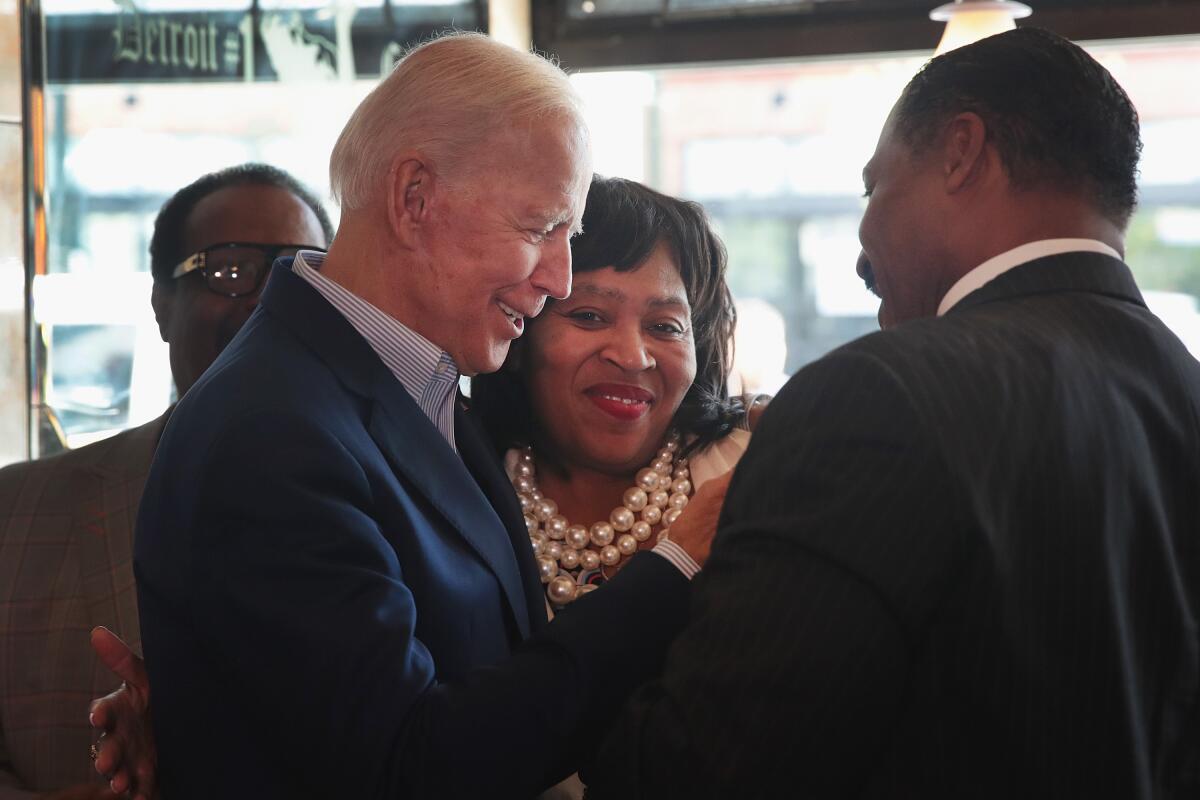
Biden responded by pointing to allegations of abuse in the Newark, N.J., Police Department while Booker was the city’s mayor. Booker, who as a senator cosponsored a bipartisan criminal justice bill signed by Trump, defended his record and laced into the former vice president with a comment that immediately went viral.
“There is a saying in my community,” Booker said to Biden. “You’re dipping into the Kool-Aid and you don’t even know the flavor.”
Cornell Belcher, a pollster for President Obama, called the line “the blackest thing in the history of Democratic primary debates. By far.”
But he cautioned that such efforts could be viewed as pandering to African American voters and said he was skeptical there would be significant movement in the polls for Booker or anyone else as a result of the debate.
He added that Booker’s failure to gain traction with black voters is not necessarily a shortcoming of his campaign. He noted that at the same time in 2007, Obama was losing badly to Hillary Clinton among black voters.
“Hillary Clinton at this point was running stronger among African American voters than Biden is,” Belcher said. “You have to put in a long-term strategy. There is no silver bullet.”
Booker’s campaign is hoping to capitalize on the positive post-debate attention through the groundwork it has laid in the early voting states, notably Iowa, which holds the first nominating contest in the nation. Booker has nearly 50 paid staffers on the ground in Iowa, among the most there of any presidential campaign.
If Booker does increase in the standings, he will likely face far greater attacks than he has before — and his record is rife with vulnerabilities. He championed charter schools, notably as mayor of Newark, and was a school-choice ally of Betsy DeVos, Trump’s controversial Education secretary who is reviled by Democrats. He defended private equity firms after Obama’s campaign attacked Mitt Romney’s Bain Capital during the 2012 presidential election.
“The Cory Booker who emerged in the early 2000s was easily described as neoliberal. He made his political career off being more of a centrist,” said Andra Gillespie, an African American politics scholar at Emory University in Atlanta and author of “The New Black Politician: Cory Booker, Newark, and Post-Racial America.” “One challenge for him is always going to be the past neoliberalism.”
The more pressing challenge, though, is Booker’s ability to show some movement in the polls.
“He can’t be polling at 2% forever,” Phillips said. “He’s got to get some momentum heading into the fall.”
Mehta reported from Detroit and Halper and Hook from Washington. Times staff writers Tyrone Beeson in Detroit and Eli Stokols in Cincinnati contributed to this report.
More to Read
Get the L.A. Times Politics newsletter
Deeply reported insights into legislation, politics and policy from Sacramento, Washington and beyond. In your inbox three times per week.
You may occasionally receive promotional content from the Los Angeles Times.
